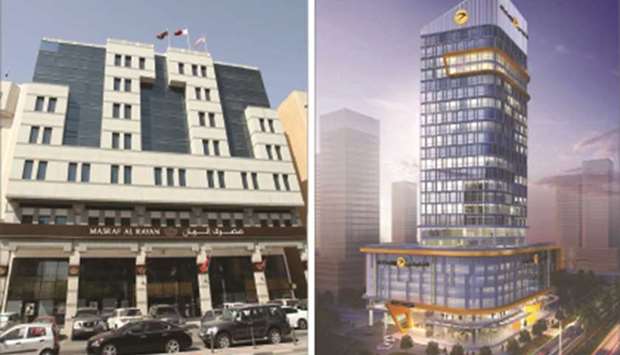Qatar's Islamic banking landscape, whose operational performance was better than the conventional peers in 2019, offers potential for further consolidation, according to Fitch, an international credit rating agency.
"The M&As (mergers and acquisitions) are still possible to create larger Islamic institutions in the market," Fitch said in a report.
This comes in the wake of Masraf Al Rayan and Al Khaliji contemplating M&A to create the third largest Islamic lender in the country.
The potential merger would lead to the creation of one of the largest Shariah-compliant banks in Qatar and in the Middle East with total assets exceeding QR164bn and shareholders’ equity of more than QR19bn.
The proposed merger would be the second consolidation in Qatar's banking system after Barwa Bank merged with International Bank of Qatar in 2019 to create Qatar's third-largest Islamic bank and sixth-largest bank overall.
Masraf Al Rayan is currently Qatar's fourth-largest bank, with a 6% share of banking system assets at the end of December 2019. Al Khaliji is one of the smaller banks in Qatar, with a market share of around 3% of system assets as of the same date.
Masraf Al Rayan has a strong relationship with the Qatari government, with loans to the government and public-sector entities making up around 47% of its financing book at year-end 2019; while Al Khaliji has a solid corporate business, with loans to the government and public sector entities comprising around 17% of its financing book at year-end 2019, according to Moody's.
Fitch noted that within the Islamic banks, liquidity is adequate and likely to benefit from government support if needed.
In 2019 the challenging Qatari operating environment continued to put pressure on asset quality, although Islamic banks fared better than their conventional peers, continuing to grow more quickly and reaching 24% of sector assets at end-2019 (end-2018: 22%).
Islamic banks remain mainly domestic deposit funded (74% of total funding; roughly in line with conventional banks), it said, adding the Shariah-principled lenders have continued to widen their investor pools, including the first issuance of a Formosa sukuk.
The average common equity Tier 1 ratio increased in 2019 to 15.9% owing to "reasonable" internal capital generation, which exceeds that of conventional banks by 190bps (basis points), according to Fitch.
The Qatar Central Bank does not allow Islamic windows at conventional banks. Islamic banks report in accordance with the Accounting and Auditing Organisation for Islamic Financial Institutions (AAOIFI) accounting standards and use IFRS standards if AAOIFI standards are not available.
A framework of Shariah principles and standards is being introduced, including a centralised Shariah body, covering Islamic banking products and transactions.


